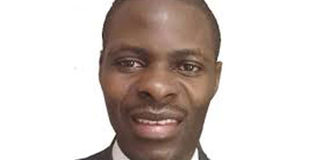How is Museveni’s rule likely to end?

Moses Khisa
What you need to know:
- Moses Khisa says the excitement about elections will not get us out of the mess we are trapped in.
I dislike speculation and prediction. In our overdetermined socio-political world, it is futile to attempt to predict the future. Where I belong professionally, in academia, we have an awful record trying to tell what lies ahead.
Social scientists never foresaw the collapse of the Soviet Union. No one predicted the 2008 housing market crash in the United States and the ensuing financial meltdown that threatened to take down the entire world economy.
Even more recently, we did not see it coming that young people would rise up in the streets against autocratic regimes in North Africa and the Middle East.
Given the utter inability to tell what comes tomorrow due to the sheer uncertainty of the world we inhabit and the contingency that undergirds processes and outcomes, it is perhaps better we leave the business of predicting future outcomes to the prophets for profit. And we have a few of those in Uganda today, who hypnotise their followers.
With that caveat, a friend and colleague, Dr Frederick Golooba-Mutebi, recently challenged me to comment on the possible ways the long-running rule of our president-for-life might end.
Dr Mutebi highlighted three forms of regime transitions that happened in the early 1990s as a gigantic political wave swept aside some big names, including Mathieu Kerekou in Benin and Kenneth Kaunda in Zambia.
First, transition by abandonment of power where the sitting government and president is forced to step down.
The Opposition and sections of civil society are strong enough to influence matters and decidedly secure an electoral result against the incumbent.
This happened in Benin in 1990.
Second, transition by transfer of power where the incumbent ruler and his government can put up a fight, albeit with limited control over the transition process in the face of a united and organised Opposition.
Here, reforms are implemented and there is a chance for free and fair elections. The end result is likely to be an incumbent defeat as happened to 96-year-old president-for-life, Kamuzi Banda, in Malawi in 1994 and Kaunda in Zambia in 1992.
The third is transition by some limited change, but more continuity. This entails reforms under the firm control of the incumbent who wins the subsequent general election because the Opposition is not well-organised as to coalesce, and civil society lacks the kind of presence necessary to impact both the reforms and election outcome.
Arap Moi in Kenya and Jerry Rawlings in Ghana pulled off this third outcome, both in 1992. In a sense, our own ruler-for-life, Mr Museveni, managed through this third in 2005, with the tactical turnaround from the so called Movement system, which in practice was a one-party State, to half-heartedly embracing multiparty elections at the same time assaulting the Constitution to remove term-limits.
For many reasons that I cannot cover here, I do not think any of the above three options is likely in Uganda as and when Mr Museveni departs. Instead, I foresee two possible outcomes, a desirable yet improbable one and a devastating, but the most probable.
The first is a negotiated outcome, the second is a possible political implosion. Let me take up each seriatim. A negotiated settlement would help heal our nation and reform our broken politics.
It would require candid conversations and honest negotiations, involving conceding to what has terribly gone wrong over the years and how to reimagine a new Uganda, overhaul the current legal and constitutional regime.
The focus would be less on uncovering our painful past and more on harnessing new ideas and energies to fuel the future, reconciliation rather than criminalisation, truth and not raw political deception.
This is the most prudent and reasonable way out of our current tragedy, but one unlikely to materialise because the rulers are so sloshed with power as to see that a negotiated settlement is for their good and in the country’s best bet.
The second option, the more likely, appears increasingly inevitable – an implosion whose magnitude is difficult to imagine. This may range from a less severe disintegration of the ruling class, with only minimal cracks that can be managed to allow system continuity with a new group at the top, to total collapse of the regime due to a combination of an internal meltdown and external pressure. Think Somalia.
These are the touch choices we face, fellow compatriots. The ball is with the rulers to change course, but more importantly, it is up to us to demand the Uganda we want.
As I have argued here multiple times, the excitement about elections will not get us out of the mess we are trapped in.
Mr Khisa is assistant professor at North Carolina State University (USA).
[email protected]




